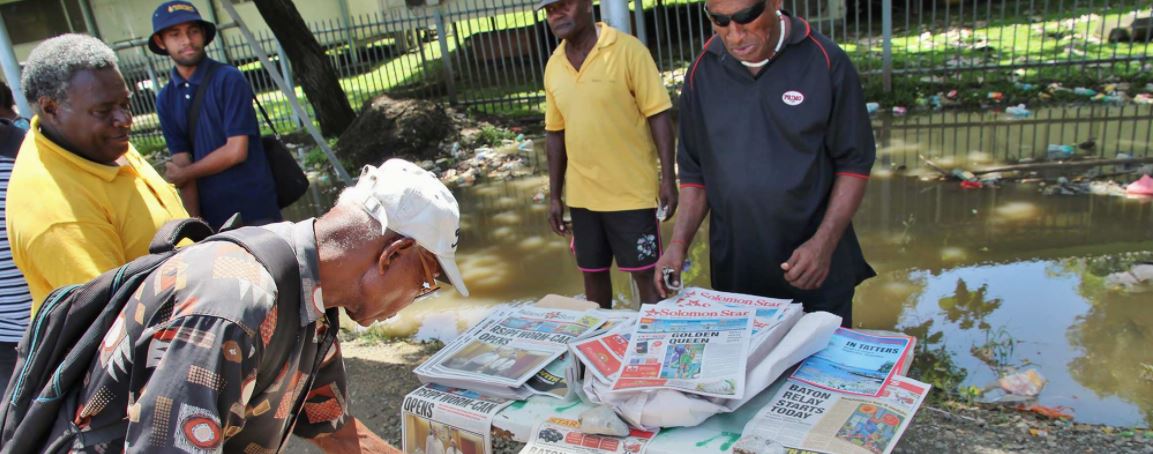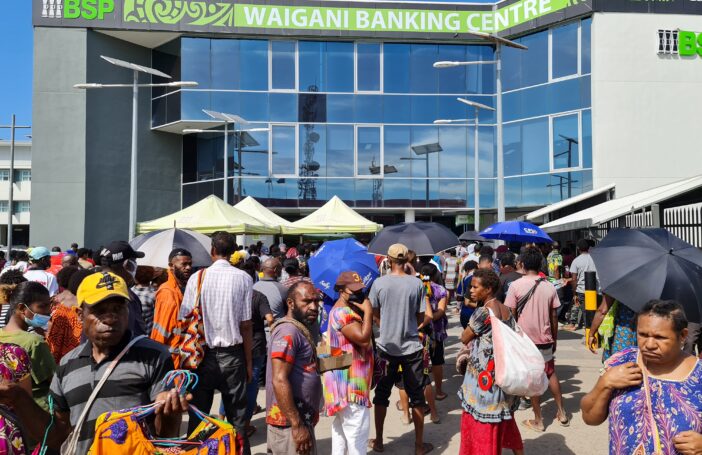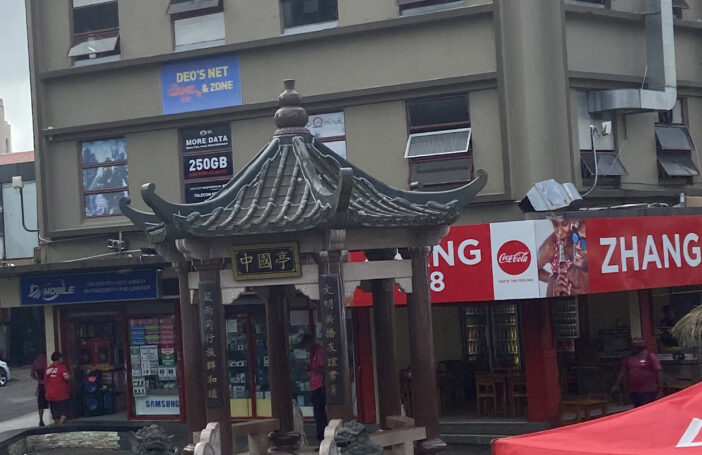You’ve heard of money laundering, right? Where criminals take dirty money and conceal its origins by funnelling it through legitimate businesses or foreign banks?
Well for a long time now, something similar has been happening in the Pacific, but involving news rather than money.
Vanuatu Daily Post Media Director Dan McGarry alluded to this in his recent item “Australia is not part of the Pacific conversation”, which looked at Australia’s engagement with the Pacific (or rather in his opinion, the lack of it). He writes: “Often in the past, Australian media services agreed to take the brunt of a government’s opprobrium by front-running a story provided to them by a Pacific source. This allows the domestic service the cover of simply reporting what everyone else is talking about. During the now-infamous Presidential pardons debacle, Vanuatu media ensured the ABC’s presence in a key press conference so that the reporter could ask the awkward questions that might have gotten a local journalist beaten up, or worse.”
For those of you who don’t live in Vanuatu and suspect Mr McGarry may have been exaggerating the potential danger of asking an awkward question, allow me to inform you that he is in no way making that up. Physical assaults of journalists, while not exactly routine in Pacific nations, are by no means unknown. Political leaders have little compunction in remonstrating with reporters and editors if they don’t like the coverage they’re getting, and this has occasionally led to blows being struck. One former Prime Minister of Vanuatu once told me in an interview that he was perfectly entitled to take action against reporters at the government run radio station because “they are my workers, they work for me, I pay their wages, I’m their boss.”
Things have obviously improved a good deal since then, but the mindset still remains among many leaders.
Let me give you an example of how news and information from a Pacific island country is “laundered”, for want of a better word, although I need to be slightly vague about some of the details of this, to protect my sources who might still be nervous about their roles in this being revealed.
In this particular Pacific nation, a man had just been appointed Police Commissioner, apparently based on little more than his loyalty to the then-Prime Minister. His main qualification for the post of leading the police appeared to be that he had been something of a criminal in the recent past. Which I suppose gives one a certain perspective on police work, but it’s not usually regarded as a positive thing for someone expected to provide leadership to a critical law enforcement service.
The Prime Minister made it known that the new Police Commissioner was his very good friend, and that he was in no way a criminal, and anything that might suggest otherwise, like the man’s actual police file detailing his many and varied offences, would need to be destroyed. Which it duly was, but not before a copy was made, which was mysteriously sent to the editor of a local media outlet. The file must have accidentally fallen into a handy fax machine on its way to the shredder. Who knows how these things happen?
The editor read the file and immediately and excitedly wrote a front page article but then realised that if he published it, he’d better book a bed in the hospital’s casualty department well in advance. It was way more than his job was worth to go directly against the PM. Once again, mysterious and opaque things happened, and the Radio New Zealand (RNZ) International fax machine in Wellington whirred into life overnight, leaving the new Police Commissioner’s criminal record waiting for us to look at in the morning. After discreet checks were made to verify the authenticity and provenance of the document, and doing the usual yet almost always pointless and futile “contacting the Prime Minister’s office for comment”, we ran the story of the new Police Commissioner’s colourful past later that day.
Which meant that the local media outlet could run their original scoop, but with the extra protection of preceding it with “Radio New Zealand International reports that…”. That way, they could claim they were simply running what was already being reported overseas. No one was actually fooled by that I suspect, but nothing could be done against the media outlet overtly, and there were no consequences.
Many similar incidents have taken place over the years involving RNZ Pacific and the ABC providing a layer of cover for their Pacific colleagues when it comes to running stories that might cause them real trouble.
There is no great ethical dilemma here – no one is lying, and independent checks are made to verify the information before it is broadcast. Admittedly, this is not an ideal solution, as news items ought by rights to be as transparent as possible about their origins. But as long as Pacific journalists are genuinely at risk if they publish sensitive information, their colleagues in Australia and New Zealand are doing the media industry in the region a favour by providing this sort of plausible deniability.
In fact the ABC and Radio New Zealand Pacific should be encouraged to keep it up as a form of very practical assistance, at least as long as it’s needed.





